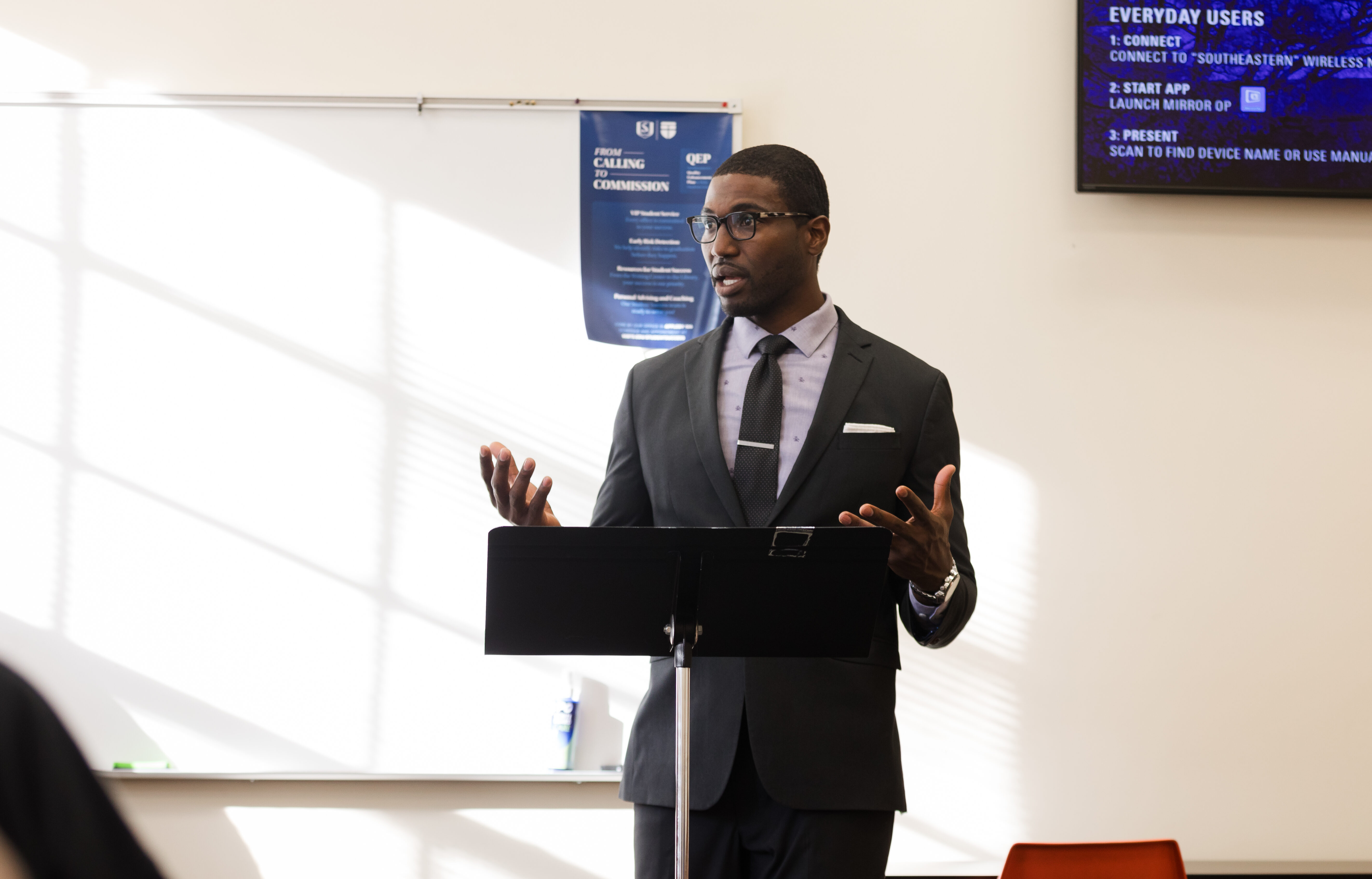First, believers should be diligent in prayer, for such persistence will foster dependence upon God. In this parable the unnamed woman’s repeated petition for justice from the judge is the main point of comparison. Note that it is not the unjust character of the judge that is compared to God; rather, it is the petitioning of the women that is exemplified for believers. In fact, the character of the judge is implicitly contrasted with the character of God, yielding the teaching that if even an unjust judge will grant repeated requests, then how much more so will a loving God answer the faithful prayers of His saints.
As Christians persist in prayer, spending time daily in God’s presence, it is natural that we will grow dependent upon Him. Indeed, believers gain knowledge of God and develop both a childlike trust and a mature faith through the regular discipline of prayer. Consider the alternative: If God answered all prayers instantly, like a genie briefly emerging from a bottle to grant a wish, then there would be no need, or even an opportunity, to get to know God intimately. However, if Christians must visit God day-by-day, and wrestle with Him in prayer, then we will naturally grow in our relationship with God and become like Him.
A second reason why we must persist in prayer is that such wrestling with God will cause us to examine our prayers and to shape our petitions to become more God-centered. Indeed, as we repeatedly bring our unanswered prayer requests back to God, we inevitably will begin to evaluate our prayers to be sure that our requests are within God’s revealed will and that they are focused on His glory. With spiritual growth, such introspection becomes reflexive for believers, as we learn that one reason for unanswered prayer is that our requests are focused too much upon ourselves and not upon God (cf. Jas. 4:2–3).
For example, one could pray for the healing of a friend from cancer. Of course, this is not a bad prayer request, and it may be completely appropriate if one is asked to pray spontaneously or if there is little information available about the individual or the ailment. Yet, to wrestle daily with God in prayer for the healing of a friend might move us to consider that it is not always God’s will to heal, for some “suffer according to the will of God” (1 Pet. 4:19). Such knowledge might result in a modification of one’s prayer from focusing solely upon healing, to a petition in which one still asks for restoration, but also asks that God’s grace would prove sufficient in the midst of a lingering illness, even if God should choose not to heal on this side of heaven.
In summary, then, the parable of the woman and the judge teaches believers that persistence in prayer is an essential part of the Christian life. While God invites us to cast all our cares upon Him (cf. 1 Pet. 5:7), the habit of regular and persistent prayer will foster a dependence upon God, and it will cause us to examine our prayer requests in order to shape them to become more centered upon God.






No comments have been added.